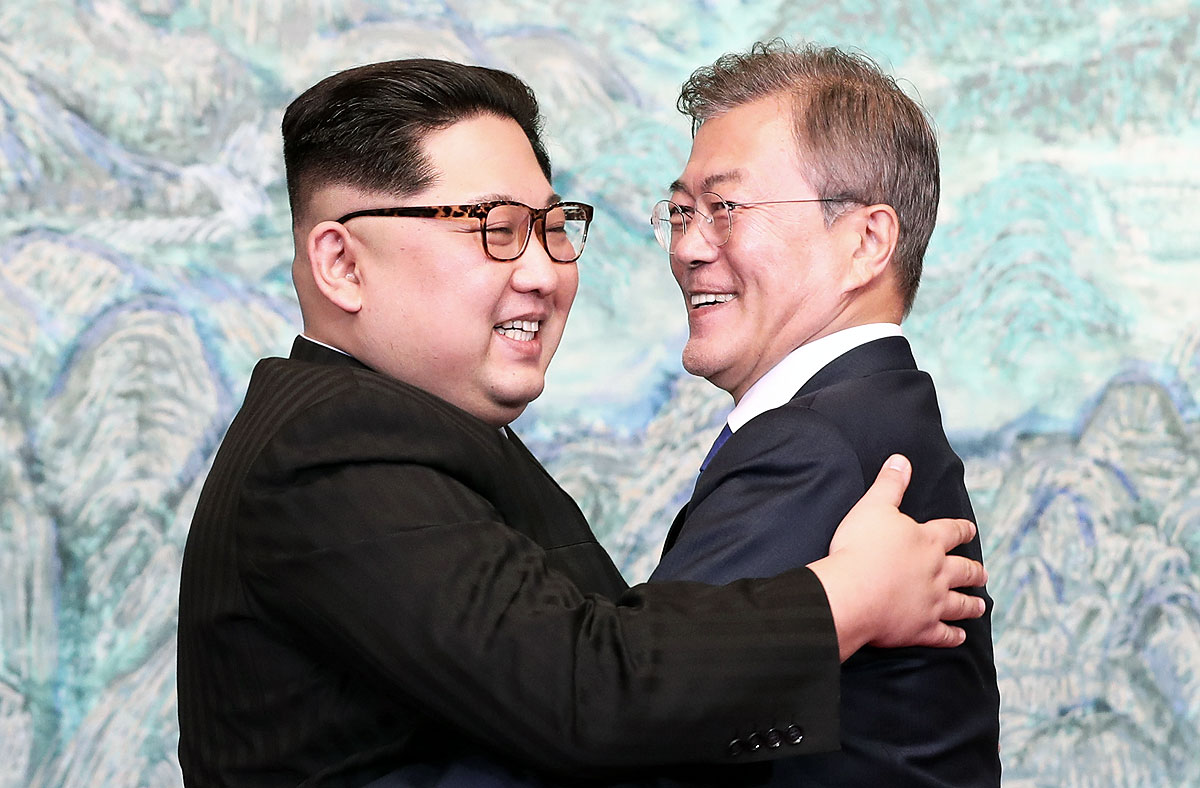Korea summit: can Moon Jae-in revive nuclear talks?
South Korean president will travel to the north to meet with Kim Jong Un for first time in 11 years

A free daily email with the biggest news stories of the day – and the best features from TheWeek.com
You are now subscribed
Your newsletter sign-up was successful
The leaders of North and South Korea are meeting in Pyongyang for a crucial summit aimed at reviving stalled denuclearisation talks.
The three-day summit between Moon Jae-in and North Korea’s Kim Jong Un will be the third time the pair have met this year, and is the first visit to Pyongyang by a South Korean leader in 11 years.
Speaking ahead of his trip, President Moon vowed to push for “irreversible, permanent peace” and better dialogue between Pyongyang and Washington during the “heart-to-heart” talks.
The Week
Escape your echo chamber. Get the facts behind the news, plus analysis from multiple perspectives.

Sign up for The Week's Free Newsletters
From our morning news briefing to a weekly Good News Newsletter, get the best of The Week delivered directly to your inbox.
From our morning news briefing to a weekly Good News Newsletter, get the best of The Week delivered directly to your inbox.
Moon added that he hoped “to find a middle ground between a US request for denuclearisation and the North's request for corresponding measures such as ending hostile relations and security assurances”.
The South Korean leader is under intense pressure to restart negotiations and get Kim to do more to demonstrate to the US that he is serious about denuclearisation, the Financial Times says.
Kim, meanwhile, “will be seeking to pressure Seoul to increase economic co-operation with his impoverished state,” the newspaper says.
The thaw in relations began when the pair first met in April and Kim committed to “complete denuclearisation of the Korean peninsula,” paving the way for a landmark meeting with US President Donald Trump in June.
A free daily email with the biggest news stories of the day – and the best features from TheWeek.com
But “as the flurry of diplomacy quieted down, there has been little progress in the US goal of North Korea relinquishing its nuclear arsenal,” says The Guardian.
Significant gaps in negotiations remain, and it is unclear how the current deadlock can be broken.
Washington has demanded North Korea unilaterally disarm before any sanctions relief is granted, while North Korean officials insist they have already made concessions by closing nuclear and rocket test sites, the newspaper reports.
However, “experts and satellite images suggest North Korea has continued to develop its nuclear program and there has been new construction at its only known nuclear plant,” the paper adds.